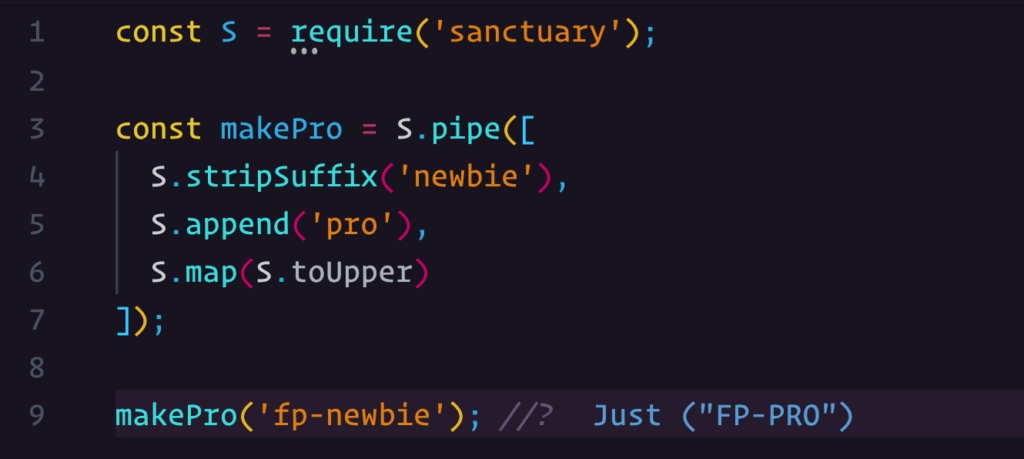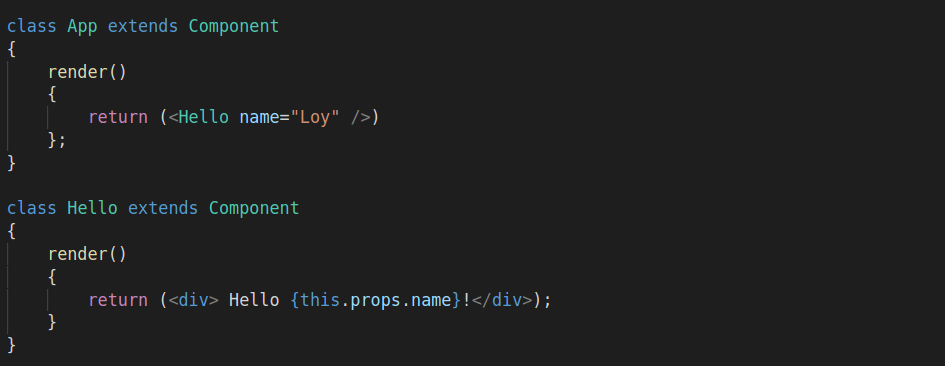
Object-oriented programming (OOP) is something that’s been around for so long that everyone has kind of accepted its existence. However, there is a growing anti-sentiment among certain programming groups against OOP, citing organizational inefficiencies and potential growth of code debt.
The natural alternative to OOP is functional programming (FP). Functional Programming follows the idea that a piece of code is stateless and works in a declarative manner. This means that the program exists to solve a specific problem through transforming the input.
In programming, there are two specific ways to transform an input. The first is via an imperative method, meaning that it focuses on describing how the program works through a list of sequential steps to arrive at a specific outcome. You can’t mix and switch out the sequence without some side effect consequence.
For example, here is a pseudo imperative program:
Start.
Check initial status of socks.
If no socks on feet, locate socks and put it on.
Remember new state, otherwise continue.
Put shoes on.
End.
In the above example, you have to put socks on before shoes. If you change the order of the command, the outcome would produce an error.
In contrast, declarative programming is a little more flexible. There is no order needed to achieve a particular outcome. Mathematical rules are a good example of declarative programming.
For example, regardless of order, the result will remain the same.
1 + 2 + 3 = 6
2 + 3 + 1 = 6
Functional programming is declarative in nature. It’s not concerned with states and will return the correct output if it follows the entire program.

On the whole, functional programming just seems so much easier to deal with in the long run. No more trying to figure out states, where your program is at and how it might fall over if your state isn’t right.
A good portion of OOP relies on states and that state can blimp out if something went wrong at a particular step. By design, OOP thinking works around things and doing things to these things in a particular order. It sounds imperative on the surface, but OOP itself is not 100% imperative.
By default, OOP is the default thinking method taught in programming courses. In the growing age of self taught, many new developers are starting with OOP and ended at OOP.
However, many senior developers are hitting up against OOP. In part, it’s because many developers fail to keep their states exclusively separated and mutations occur through the shared relationship between objects.
The bigger the object grows, the harder it becomes to keep that object maintained and concise. Over time, the pattern that simplified the thinking process takes up more time than its actual modification.
If object oriented programming is like a house, extending an object is like adding another room. When the house is small, it’s easy to see where everything is and the structure is generally sound. However, when you start adding levels and layers, if the foundations are not made with the extension in mind, it can become unstable and collapse.
In the code, when things get too big, it turns into one big glob of a global state – which is never a good thing and often a last resort. When the last resort becomes a frequent resort, then you know that your code has fallen over itself and requires more time to clean up than to add something meaningful to it.
At that point, your entire program becomes more cumbersome to maintain, costly to sustain, and a general hindrance to your general output.
Functional programming, as a result, has been gaining traction in awareness and general application. This is because functional programming is the polar opposite of what object-oriented tries to be. It discards the concepts of states completely and prevents unwanted relationships from forming.
Despite solid arguments for functional programming, object-oriented is often etched deeply into the actual programming language itself. JavaScript, for example, is a multi-paradigm with prototypal OOP foundations. In JavaScript, everything is an object – no matter how hard you want to deny it through a functional approach.
Java allows for a purely functional approach, but it requires a mindset shift that limits your ability to use things like primitives, classes, mutables, and loops. The idea that all you need is a function like a big step backwards when you suddenly discard all your potential tools in your programming language.

However, what most people don’t realize is that when it comes to functional programming, there’s more to it than just writing straight forward functions. The thinking behind FP is that your code is no longer a list of instructions anymore – something which object-oriented programming often find themselves trapped in. Rather, with functional programming, you have a collection of functions that you can ‘compose’ with.
The idea behind composition is that relationships are established via an interface link that allows the function to remain separated and reused in other places. In an OOP class inheritance based system, the created object is tightly coupled with the parent or superclass.
This means that if something in the parent or superclass changes, it may have an undesirable impact on the children. The effects of change can also flow upwards, where children classes are able to mutate certain things that are contained within the parent or superclass.
The issue with inheritance is that it can cause unnecessary two-way mutations. Functional programming, however, is a one way street and any change created is flowed through in a unidirectional manner.

Here’s an example to help you distinguish between a functional composition approach vs OOP class instance inheritance.
Imagine you have a car. Under OOP class instance inheritance, your car would look something like this:
class Vehicle {
// vehicle definition here
}
class Car extends Vehicle {
// car is now a child of vehicle
}
With OOP, the vehicle is a car.
However, with a functional composition approach, the idea of vehicle is discarded completely. Rather, the functionalities, bits and pieces are broken up like lego and then reassembled to form a car.
So rather than saying that the vehicle is a car. You change your thinking to the car has a door, wheels and steering wheel.
With a functional approach, you are composing what your car looks like rather than pre-defining it and hoping that it doesn’t change.
The major perk in composition is that it makes your program more flexible towards change. While it creates an object-like result, the process of assembly differs greatly from an OOP inheritance methodology.
As more developers work to ship code in a rapid fire manner, they will eventually encounter the issue of the object growing too big and complex to properly maintain. That’s when functional programming will start to take over their workflow and thinking processes.
What we need to acknowledge is that object oriented isn’t bad. Over the years, we’ve seen development in the balance between OOP and FP. The thing about object oriented and functional approaches is that they are just implementation ideologies.
These ideas were initially created to solve a specific type of problem. for OOP, it was to try to encapsulate the world in a diecast style. However, the thing with diecast is that you can’t easily change them. They might be modular, but as the complexity grows, that modularity needs to also be flexible to accommodate.
Functional programming is a much more modular approach – but it also contains many small parts that need to be coordinated in an efficient manner. It’s easy to lose track of things, especially in a team setting. With objects, you can see the shape right away.
It’s the functionality extensions that’s becoming an issue. Functional programming has an equivalent issue where the shape can get lost in the sea of modular pieces.
So is object-oriented dead or alive?
That question is too black and white.
In part, it’s because OOP is evolving as languages that support it come out with hybrid solutions. JavaScript, for example, is OOP by design but strongly supports functional programming based ideas. This gives the opportunity to mix and match ideas based on the required situation.
The point of programming is to translate ideas. What the programmer ends up using is a judgement call that’s marked by the demands of the project, what the boss wants and how much time they’ve got to work on the code. Nothing is ever a clean sandbox and sometimes, entrenched implementations of OOP may be the thing that’s holding the project back. But as new ways of thinking about OOP with a functional approach emerges in the community, the programming idea moves along in time with what the language of choice has decided to support.
In short, object oriented is neither dead, nor is it truly alive. Rather, it’s an evolving creature that’s absorbing other abstraction ideas in order to be more effective as an ideological implementation.